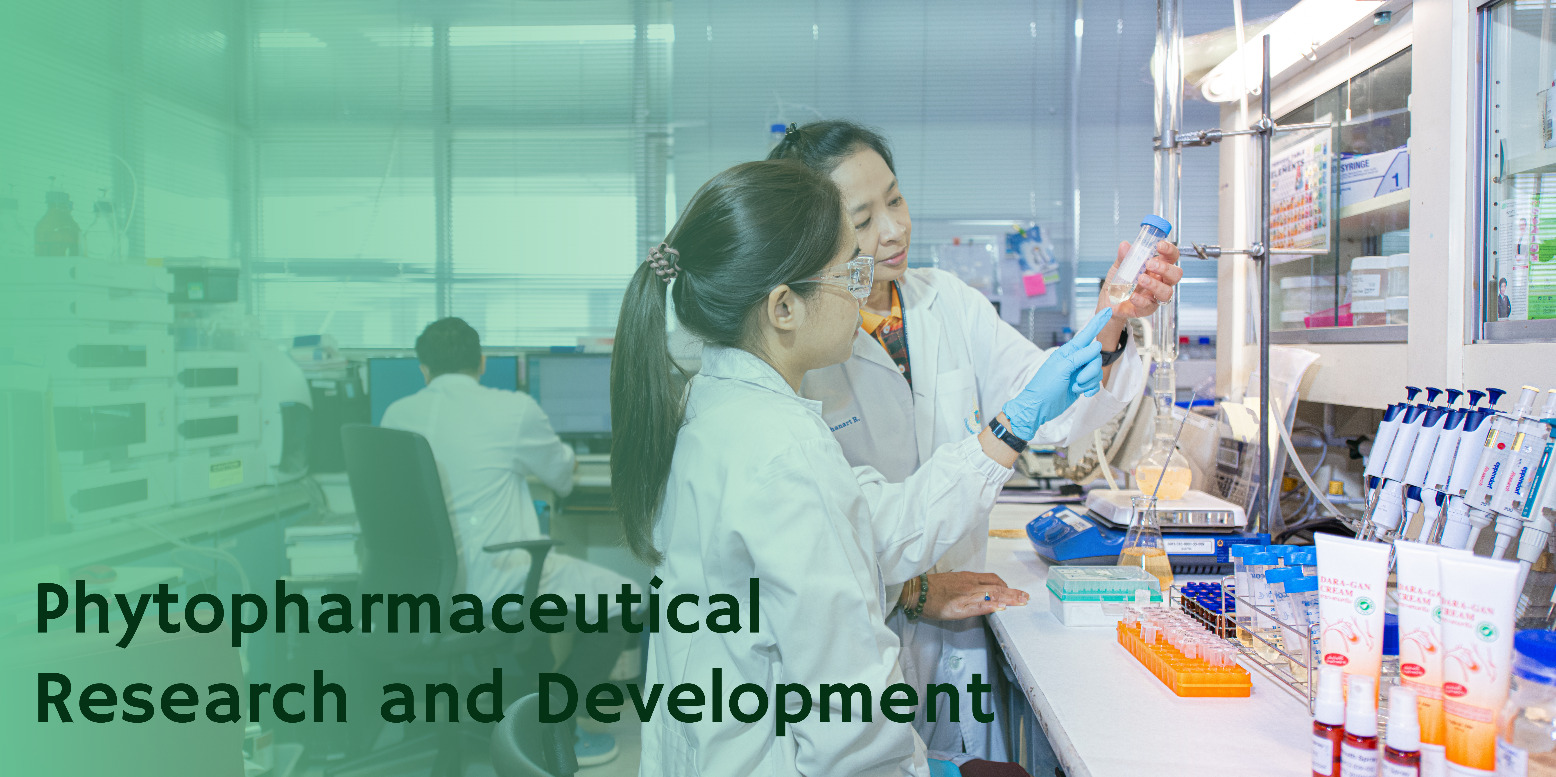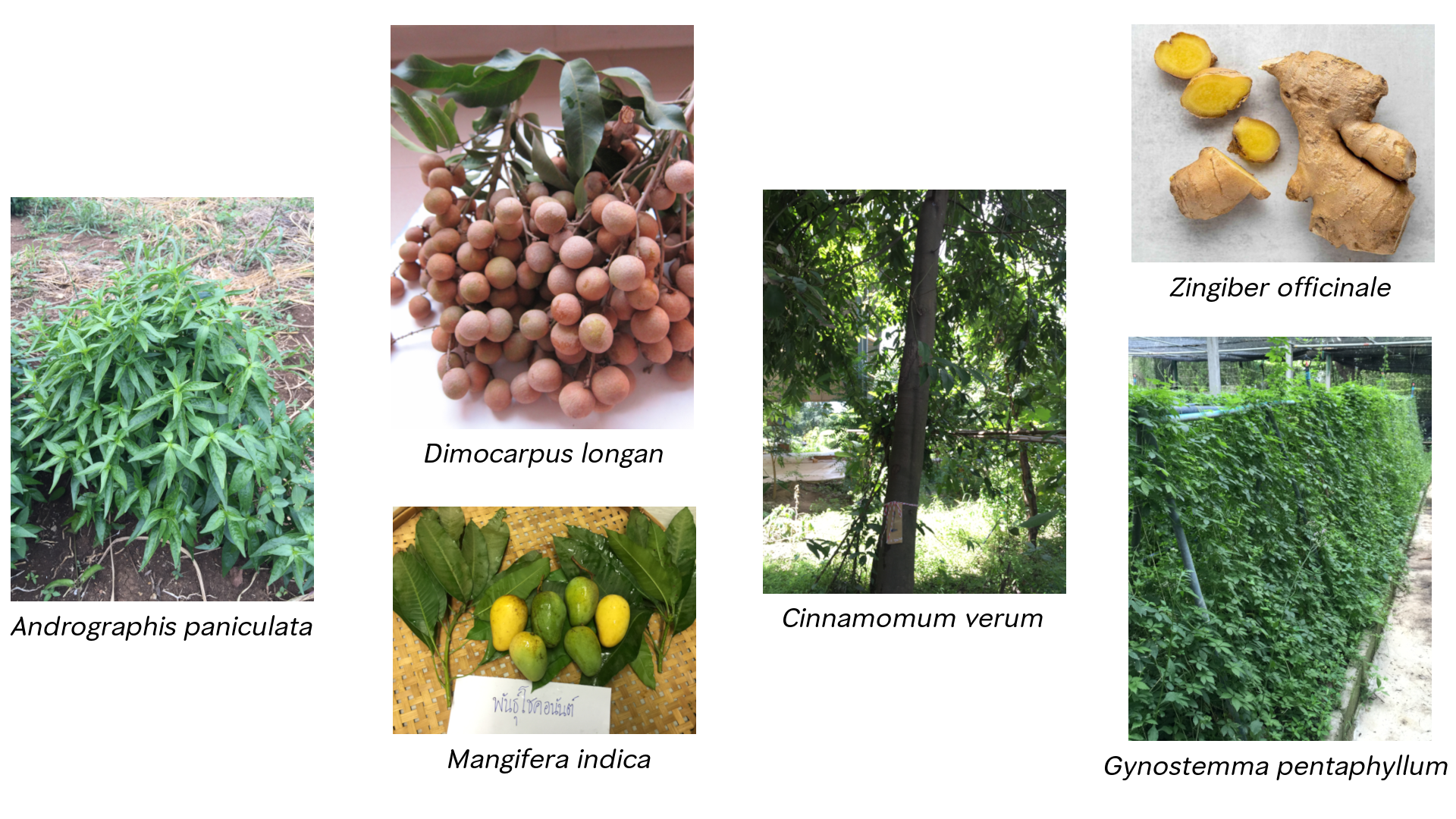Laboratory of Pharmacology

Herbal medicines have been an integral part of Thai society for centuries. Most of medicinal plants preparations are complex, with multiple constituents that may contribute to their pharmacological effects. Rapid analytical methods for extraction, identification, and quantification of bioactive compounds in selected Thai herbal medicines have been developed and used for quality control to ensure their efficacy and safety. Phytopharmaceutical research and development are prioritized by establishing standardized herbal extracts containing known amounts of major bioactive compounds then their pharmacological and toxicological activities will be studied. Example of pharmacological studies are anti-cancer, anti-inflammation, anti-diabetes, and prevention of neurodegenerative diseases e.g. Alzheimer’s disease.
At present, standardized extracts of selected Thai herbal medicines produced in our laboratory are Andrographis paniculata (Fah Talai Chon), Cinnamomum verum (cinnamon), Zingiber officinale (ginger), Dimocarpus longan (longan or lumyai), Mangifera indica (mango), and Gynostemma pentaphyllum (Jiaogulan) and these extracts will be also used as Active Pharmaceutical Ingredient (API) in herbal formulation, for example, herbal medicines (capsules/cream), cosmeceutical products, and food supplement (tea).

Laboratory of pharmacology has several research projects both in preclinical and clinical studies. Currently, phase I clinical study on the pharmacokinetic of four major bioactive diterpenoids after single and multiple doses of different types of A. paniculata extracts at high dose for treatment of COVID-19 has been investigated. Furthermore, several ongoing clinical trial studies of herbal formulation are under investigating for efficacy and safety, for example, A. paniculata or G. pentaphyllum extract products in pre-diabetic volunteers and D. longan product for pain relief associated with osteoarthritis of knee. These clinical data will be beneficial for supporting the use of these herbal medicines in the hospitals.
The research activities in phytopharmaceutical research and development are classified as upstream, midstream, and downstream:
Upstream
- Good Agricultural Practice (selection of plant raw materials from specific areas)
- Analytical methods for quality control (identification of active compounds/fingerprints) Midstream
Midstream
- Preparation of standardized herbal extracts containing high levels of major active compounds
- Pharmacological and toxicological studies including molecular mechanism pathways Pharmacological and toxicological studies including molecular mechanism pathways (in vitro and in vivo)
- Development of herbal formulations and stability study (laboratory scale)
Downstream
- Technology transfer to private sector for the production in industrial scale
- Clinical trial of herbal formulation (efficacy and safety) including pharmacokinetics






